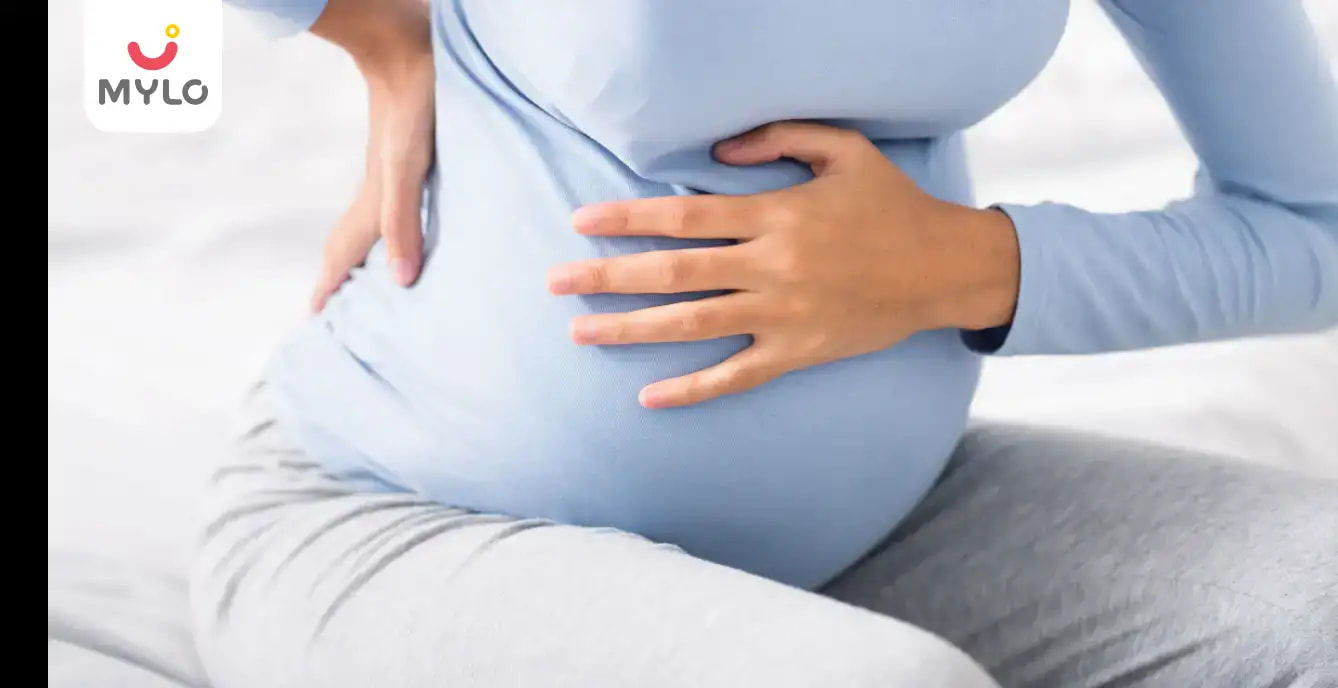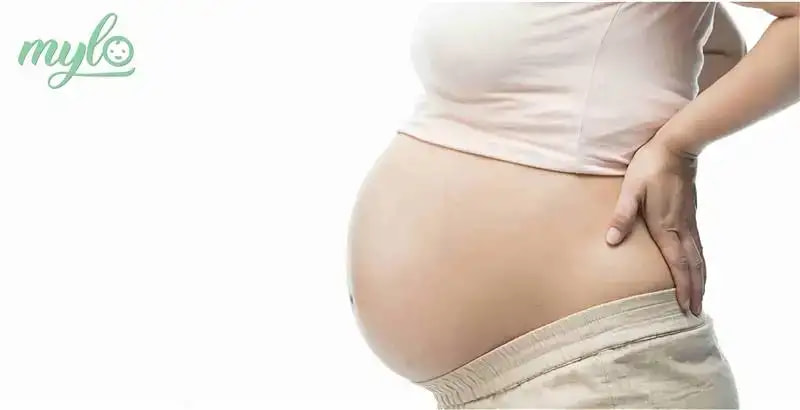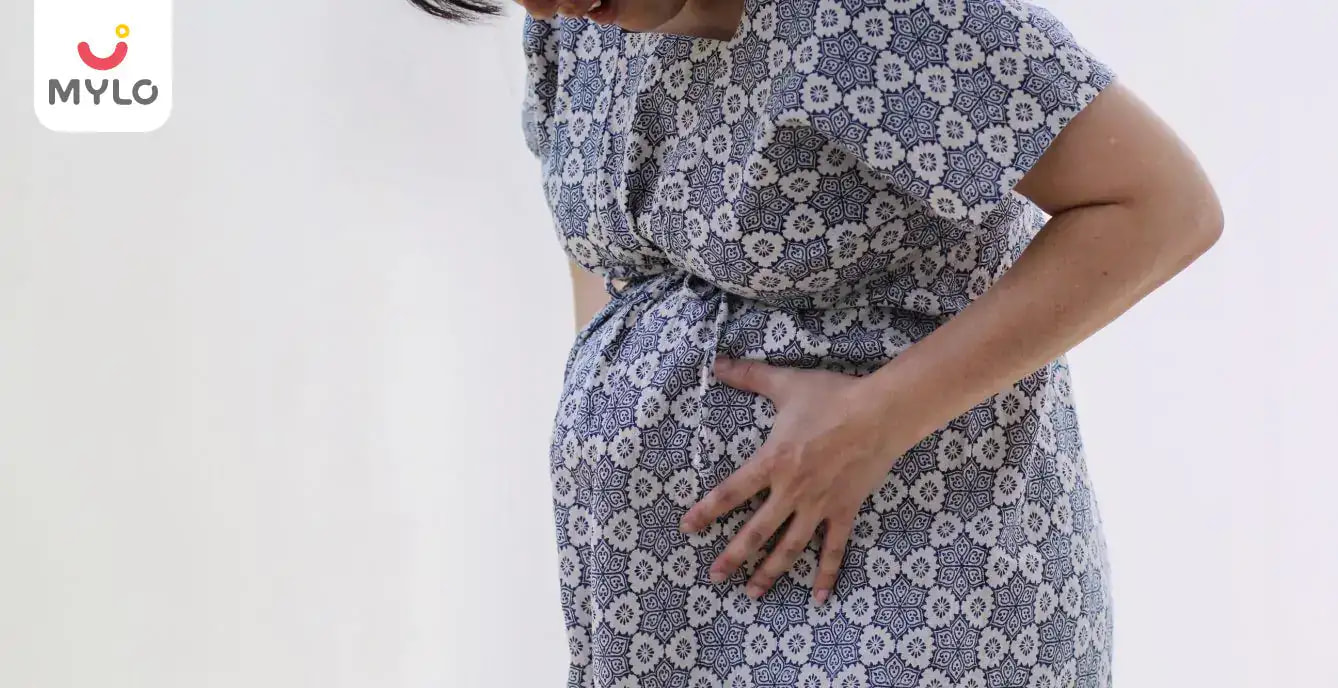Home

Health & Wellness

Appendicitis In Pregnancy Symptoms, Diagnosis & Surgery
In this Article

Health & Wellness
Appendicitis In Pregnancy Symptoms, Diagnosis & Surgery
Updated on 6 April 2023
After learning that you will soon become a mother, nothing else matters as much as ensuring your unborn child is healthy. Pregnancy isn't easy, but it's worth the discomfort if you want a healthy baby. Appendicitis in pregnancy is a frequent condition that affects pregnant women and is caused by inflammation of the appendix. Appendicitis is a painful condition, although it is not fatal. Fortunately, appendicitis is very common and can be readily treated and cured. However, pregnancy can add additional complications; therefore, treating appendicitis during this time requires special attention.
What Is Appendicitis During Pregnancy?
The appendix, located in the lower belly, is a vestigial organ, which means it serves no purpose and is just cosmetic. The tail, lost throughout evolution, is now only represented by the appendix. It's also been proven to good harbor bacteria that can speed up the digestive process. Appendicitis occurs when the appendix, a vestigial organ, becomes inflamed. The inflammation and pus in the appendix are excruciating for the mother. Although the illness is uncommon in pregnant women, it can be dangerous for both the mother and the child. The expectant mother is responsible for resolving any minor discomforts; therefore, if you suspect you have the disease, you should see a doctor immediately.
Symptoms of Appendicitis During Pregnancy
You may learn a lot about the nature of an illness from observing its symptoms, which can help calm your concerns. When it comes to pregnant women, the most prevalent symptoms of appendix during pregnancy are:
1. Abdominal Pain:
Pain in the lower quadrant of your abdomen is the primary sign of an inflamed appendix and is experienced not just by pregnant women. The discomfort begins mildly and then increases over time. It becomes intolerable near the end, and pressing on the area may worsen it.
2. Discomfort in the stomach and nausea
Even though these signs and symptoms are common, they may be a sign of appendicitis if they are accompanied by pain on the right side of the abdomen.
3. Vaginal Bleeding:
Pregnant women should be especially concerned about the possibility of vaginal bleeding. No matter how much or how little the bleeding is, if it comes with stomach pain, you need to see a doctor right away.
4. Fever
Although fever can signal a possible infection or some other illness, when accompanied by abdominal pain and the above symptoms, it may be a sign of appendicitis during pregnancy.
5. Abdominal bloating
It may be hard for you to determine whether you’re experiencing bloating around your stomach during pregnancy. But if you do notice any unusual bloating or swelling, it may be a sign of appendicitis.
6. Loss of appetite
Losing your appetite suddenly and not feeling like eating anything can also be a symptom of appendicitis in pregnancy.
Diagnosis Of Appendicitis In Pregnancy
If a mother-to-be has even one of these signs, she should go to the doctor right away to get a proper diagnosis. Ways it can be recognized include the following:
1. First, a person's blood is tested to determine their white blood cell count. Due to the inflammation caused by appendicitis, there is a rise in the total amount of WBCs in the blood.
2. Appendicitis has been linked to a heightened risk of acquiring a urinary tract infection, so a urine test is also performed.
3. Most of the time, ultrasound scans are used to confirm a diagnosis of appendicitis. This is because they are the safest and most convenient way to get an image during pregnancy.
4. MRI scans are performed if the result of ultrasound examinations are inconclusive. In addition, it is entirely safe, especially for pregnant women, and emits no radiation.
Surgery of Appendectomy During Pregnancy
It is possible that laparoscopic surgery can be performed on you if you are in your first or second trimester of pregnancy. This procedure is sometimes called "band-aid surgery" because it only requires a few little incisions rather than a long one in the patient's abdomen.
Since it's harder to do a laparoscopy on a pregnant woman, the incision will have to be bigger in the third trimester. Fetal monitoring helps keep an eye on your baby during surgery after the 24-week mark.
While about 10% of women who get an appendectomy during pregnancy (whether laparoscopic or open) will give birth prematurely, preterm contractions are still possible. Pregnancy puts a woman at increased risk: pregnancy mortality rates are 8% before 24 weeks, 13% between 24 and 28 weeks, and 35% between 29 and 36 weeks.
Recovery after appendectomy surgery during pregnant
If you and your baby are doing well following surgery, you may be able to go home sooner than if you weren't pregnant. You should plan on spending at least one night there.
The importance of your postoperative recovery is amplified now that you're expecting. If you've had difficulties or are showing signs of premature labor, you'll need to take at least a week off work, possibly more. For optimal recovery, both rest and movement are necessary. If you can get out of bed as soon as possible, your healing will go faster and you will have less trouble.
Avoid unnecessary lifting of heavy objects. To aid your recovery, eat healthily and attend your doctor's visits. The average follow-up appointment with a surgeon is two weeks after surgery.
Preparation before treatment
Check-in with each specialist to make sure they are communicating with one another about your treatment. No adjustments to your birth plan are necessary unless the procedure is scheduled for a time close to when you expect to go into labor.



Written by
Roohi Kalra
Get baby's diet chart, and growth tips

Related Articles
Related Questions
Hello frnds..still no pain...doctor said head fix nhi hua hai..bt vagina me pain hai aur back pain bhi... anyone having same issues??

Kon kon c chije aisi hai jo pregnancy mei gas acidity jalan karti hain... Koi btayega plz bcz mujhe aksar khane ke baad hi samagh aata hai ki is chij se gas acidity jalan ho gyi hai. Please share your knowledge

I am 13 week pregnancy. Anyone having Storione-xt tablet. It better to have morning or night ???

Hlo to be moms....i hv a query...in my 9.5 wk i feel body joint pain like in ankle, knee, wrist, shoulder, toes....pain intensity is high...i cnt sleep....what should i do pls help....cn i cosult my doc.

Influenza and boostrix injection kisiko laga hai kya 8 month pregnancy me and q lagta hai ye plz reply me

Related Topics
RECENTLY PUBLISHED ARTICLES
our most recent articles

Baby Sleep Management
5 Common Myths Busted About Baby Sleep
Ectopic Pregnancy
“Ectopic Pregnancy: All You Need to Know About This Complication”
Jan'22 Birthclub
Importance of Typhoid vaccines
Jan'22 Birthclub
Benefits of eating nuts
Jan'22 Birthclub
Can One Induce Labor Naturally?
Jan'22 Birthclub
Should One Consider Keeping Their Pregnancy A Lowkey News?
- Destination decide
- After delivery pregnancy
- Mylo....
- Meri folecular study hui hai mujhe last 10, 12 din drest halka halka pain ho raha tha but kal band ho gaya kya ye period ka lakshan hai ya fir pregnancy ka
- cute baby
- Blessings
- Summer hacks that makes up your skin healthy
- Want to know
- Level 2 ultrasound report
- Aaj hum morning ko mammi ban gye ladki hui h
- Orange colour of joy and creativity
- Ek Nayi soch azaadi ki taraf
- I got to know through facebook since it was showing some useful info regarding new born baby. Many usefull information i can gather from this app. I used to panic regarding split n nose block of my new born baby similar/same question already rised by many moms n solutions also shared over here in this platform. Its really helpful for new mom who need to learn alot like me.thanks for mylo team who planned to help moms by building this wonderful platform to solve many issues for new born.
- Waiting


AWARDS AND RECOGNITION

Mylo wins Forbes D2C Disruptor award

Mylo wins The Economic Times Promising Brands 2022
AS SEEN IN

- Mylo Care: Effective and science-backed personal care and wellness solutions for a joyful you.
- Mylo Baby: Science-backed, gentle and effective personal care & hygiene range for your little one.
- Mylo Community: Trusted and empathetic community of 10mn+ parents and experts.
Product Categories
baby carrier | baby soap | baby wipes | stretch marks cream | baby cream | baby shampoo | baby massage oil | baby hair oil | stretch marks oil | baby body wash | baby powder | baby lotion | diaper rash cream | newborn diapers | teether | baby kajal | baby diapers | cloth diapers |








